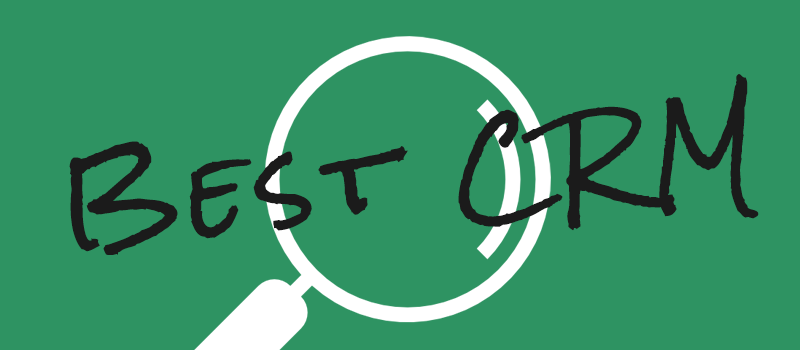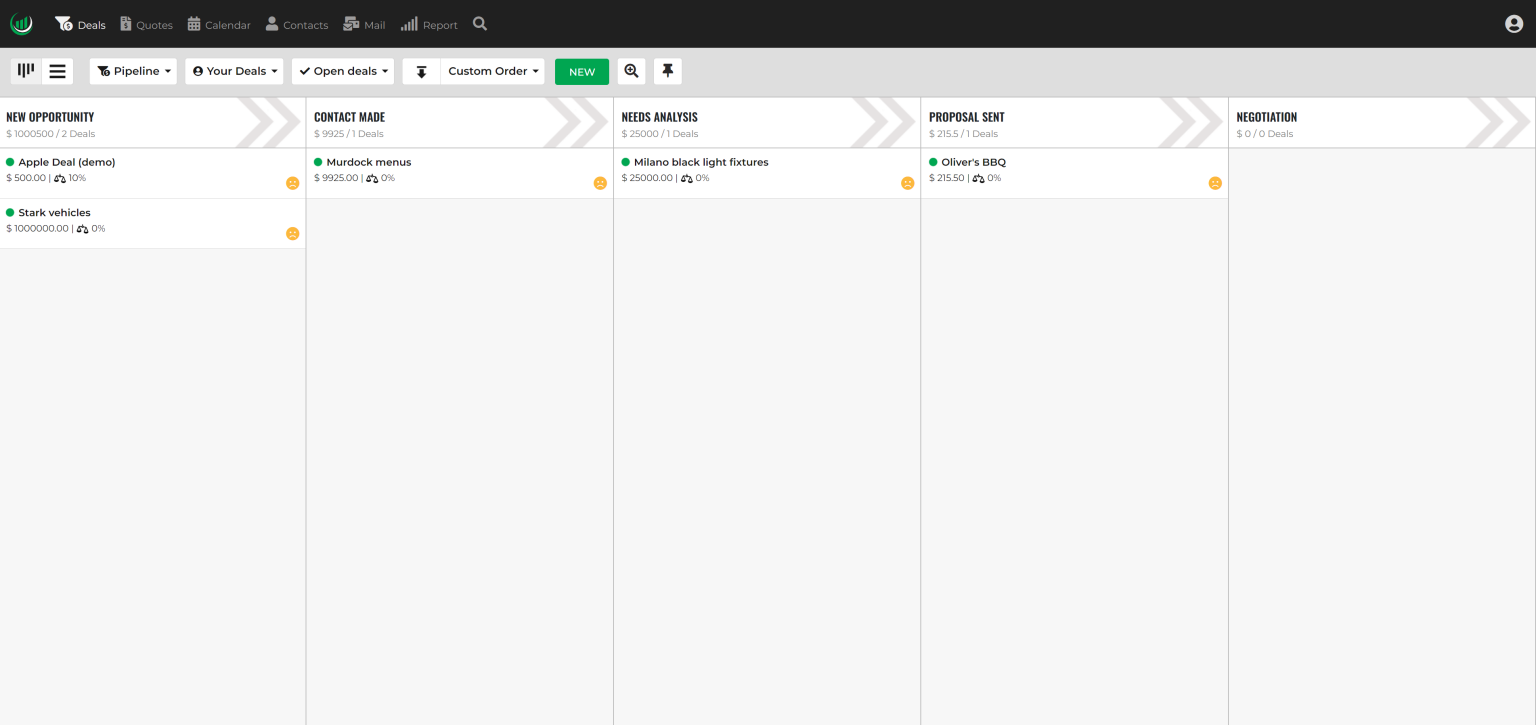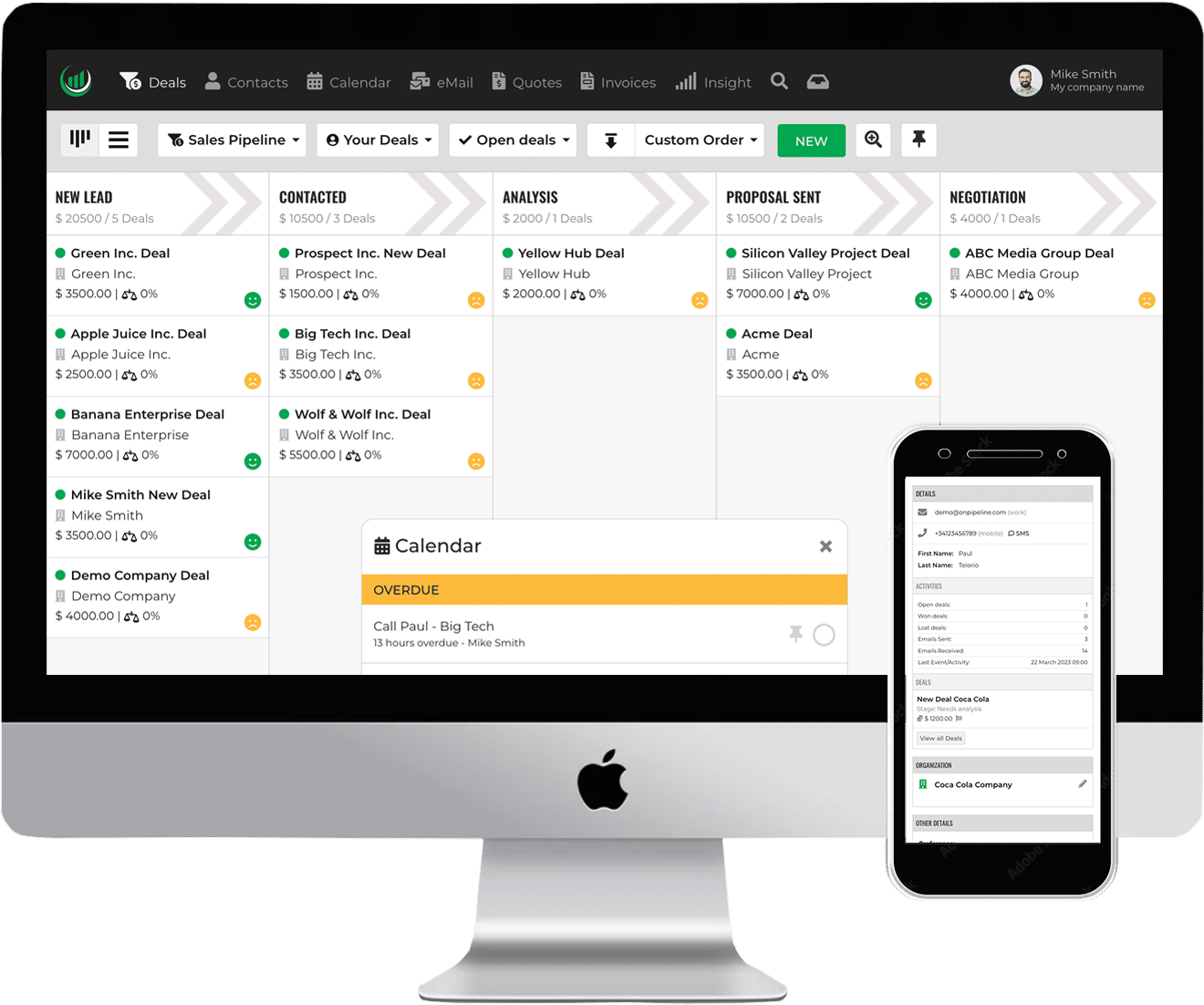After the first rush of customers, it can be hard to handle current clients and attract new ones. Small businesses often don’t have enough time to create a sales funnel that helps get customers.
This article will explore why small businesses should utilize a Customer Relationship Management (CRM), what components should be included in an ideal CRM setup, and which software is the best fit for a particular business.
CRM software for SMEs
A CRM, or customer relationship management system, is a process used to track customer data and interactions. This data can include customer contact information, sales history, purchase patterns, and more.
It helps businesses to organize, store, and analyze customer data and interactions, so that they can better understand customer needs and provide better service. The data can also be used to identify new sales opportunities, automate marketing tasks, and build loyalty.
By using a CRM system, businesses can build meaningful customer relationships and increase customer satisfaction.
CRMs can be highly customized for companies of various sizes and budgets. While there are many CRMs that are geared towards large companies and are more expensive, there are also CRMs that are designed with small businesses in mind and are more user-friendly and cost-effective.
Not all CRMs are the best fit for small businesses, so it is important to research the available options and find one that meets the needs of your business in terms of both usability and affordability.
Why do Businesses need CRMs?
CRM tools provide a range of advantages, allowing businesses to more effectively manage their activities and maximize their growth potential.
With a CRM, businesses can easily store, organize and access customer data, allowing them to better understand their customers and build meaningful relationships.
Additionally, CRM software provides an array of marketing and sales automation tools, enabling businesses to target their customers more effectively, nurture leads faster and close more deals.
Furthermore, CRM solutions can help businesses streamline their operations, by providing a central hub for customer service, which can help reduce costs and improve customer satisfaction.
Finally, CRM tools serve as a great source of valuable insights, which can be used to improve processes and optimize business operations. Overall, CRM tools provide a range of advantages to small businesses, enabling them to better manage their business activities and increase their growth opportunities.
1. Customer Service
CRM automates and simplifies the process of tracking customer interactions and collecting data, such as contact information, customer preferences, sales history, and more. This data can then be used to inform sales, marketing, and customer service.
It provides customer service teams with the ability to easily access customer data and respond quickly to customer inquiries.
By managing all your leads and collecting important contact information, a CRM system helps ensure that all teams are on the same page and can provide customers with a unified, positive experience.
2. Increase in sales
Streamlining the sales cycle involves creating a streamlined process to make sales faster and more efficient. This could include automating certain tasks, such as customer follow-ups, or creating standard processes for sales activities. Building a sales pipeline helps to track customer progress and identify where the sales process is being held up.
Managing the stage of sales is important to ensure that all customers are progressing through the sales process, and that any issues are quickly identified and addressed.
Finally, analyzing all sales data in a single location allows sales teams to quickly identify trends and areas for improvement. By taking these steps, businesses can improve their sales process and increase their profits.
3. Analysis
CRM tools are designed to help businesses organize and manage customer data. By breaking down data into smaller, more manageable pieces, businesses can gain valuable insights into their customer base and identify patterns and trends in their customer behavior.
This data can then be used to create more targeted marketing campaigns, personalized customer experiences, and improved customer service.
Additionally, CRM tools can help businesses better understand their customer base, allowing them to better respond to customer needs and preferences. This can lead to increased customer loyalty, resulting in improved customer retention rates and increased sales.
4. Productivity and efficiency
CRM can help your business avoid missed opportunities and improve your overall business processes by providing a sales pipeline. This pipeline enables you to track your sales prospects, contacts, and customers from the initial contact through to the close of a sale.
It will also allow you to forecast future sales, compare performance against goals, and identify trends and opportunities for improvement.
Additionally, a CRM tool can help you manage customer data, automate manual tasks, and streamline communication with customers. By leveraging a CRM tool, you can reduce time spent on administrative tasks and focus on strategies to drive customer acquisition and retention.
5. Centralized database
A centralized database with all your contact information can be easily accessed by anyone in your company, allowing them to quickly search for contacts, view customer profiles, and get the information they need.
CRM provides powerful insights, allowing you to better understand customer behavior, target the right audiences, and optimize your marketing campaigns for maximum efficiency and effectiveness.
6. Communications
A CRM platform can help manage the process of lead nurturing by informing employees when they should contact a prospect, and tracking every interaction with that prospect in one centralised system.
This includes logging calls, emails, meetings and other interactions with the lead. Furthermore, a CRM can help identify which steps of the lead nurturing process are most effective and provide actionable insights to help improve the overall lead nurturing strategy.
7. Customer segmentation
A CRM system is a great tool for organizing and managing customer and prospect relationships. It allows you to store, categorize, and access your contacts in a way that is customizable to your own needs. With a CRM, you can easily organize your contacts into different lists, such as customers, prospects, partners, or any other criteria you wish to use. This makes it simple to find and contact the contacts you need, when you need them.
How Much is a CRM?
The most widely-used CRM systems provide various packages to suit different requirements. If you only need the basics, such as contact and deal management, then you can usually find a suitable and inexpensive plan.
However, if you need more complex features, such as large-scale sales automation, then there are more comprehensive packages available.
The cost of a CRM service per month is based on the amount of individuals in an organization who are using the system. This cost is determined by multiplying the platform’s base price by the amount of people who are accessing it.
Subscriptions usually start at an inexpensive price of $12 per individual and can get as costly as $300 for each person.
Free CRM?
New customers are often presented with free versions CRM programs that offer basic functions such as contact and customer profile management, lead and sales tracking, email and call automation, reporting tools and analytics, and automated marketing campaigns.
These free plans may be limited in terms of features and usage, including the number of contacts, storage capacity, and access to advanced features.
Some businesses may find these limitations restrictive and may need to upgrade to a more comprehensive plan with more features and greater usage capacity in order to maximize their CRM software and benefit from its full potential.
The 5 Best CRM solutions
Doing an online search for CRMs will reveal a multitude of options, all with distinct advantages and functionalities. We have created a list of the most reliable CRMs for small companies to make it easier for you to choose.
Note: Prices may differ from those listed, please check the current prices for confirmation.
1. Onpipeline
Key Features:
Easy to use CRM platform with a range of helpful tools and many advantages. These include centralized storage of customer information, customizable database fields applicable to your business, streamlined sales processes, and activity management.
Pros:
- Wealth of capabilities such as maintaining contacts and leads, unlimited sales pipelines, activities, collaborating with others, generating quotes and invoices, and much more.
- Intuitive interface
Cons:
Made specifically for Sales Teams
Price:
From $12 to $49/user/month
Get started with Onpipeline – start 30-day free trail
2. Hubspot
Key Features:
Hubspot is a widely recognized CRM platform that provides users with an extensive selection of features, like contact management, and a free plan.
Pros:
- Free plan
- Lots of integrations with popular apps
Cons:
Very expensive when you upgrade; No quote manger or invoices
Price:
From $50 to $1200/month
Compare Hubspot – Hubspot vs Onpipeline
3. Insightly
Key Features:
Insightly provides small businesses with useful information about their sales and performance through its Business Intelligence services. Additionally, it has a sidebar extension for the Chrome web browser which allows its users to save customer data into their CRM quickly.
Pros:
- Project management platform
- Multi-step workflow automation
Cons:
Advanced features not included in basic plans
Price:
From $29 to $99/user/month
4. Keap
Key Features:
It specializes in email and marketing automation, utilizing pre-made templates and customizable workflows to take routine tasks off the hands of employees.
Pros:
- Automated follow-up sequences
- User-friendly
- Comprehensive contact management
Cons:
Focused on email marketing
Price:
From $160/month
5. EngageBay
Key Features:
EngageBay provides a cost-effective Customer Relationship Management (CRM) system, complete with a range of marketing features such as landing page builders and lead acquisition forms.
Pros:
- Communication hub
- Fast customer service
- Free plan
- Limited contacts in small plans
Cons:
Not the most intuitive user interface
Price:
From $12 to $85/user/month







